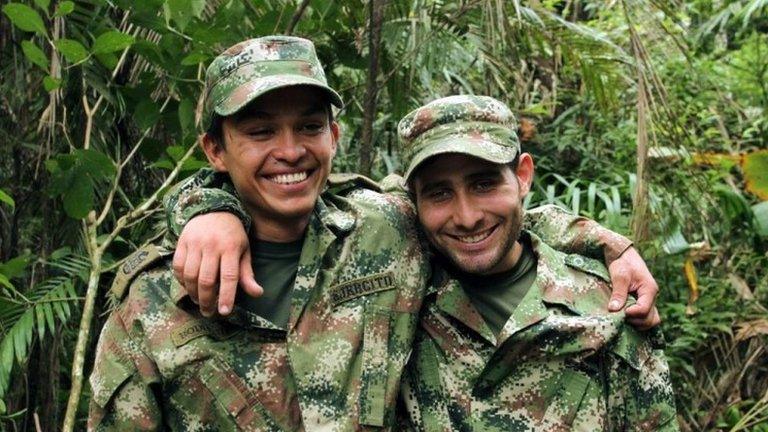Colombia unsure about hostage numbers before talks with ELN rebels
- Published
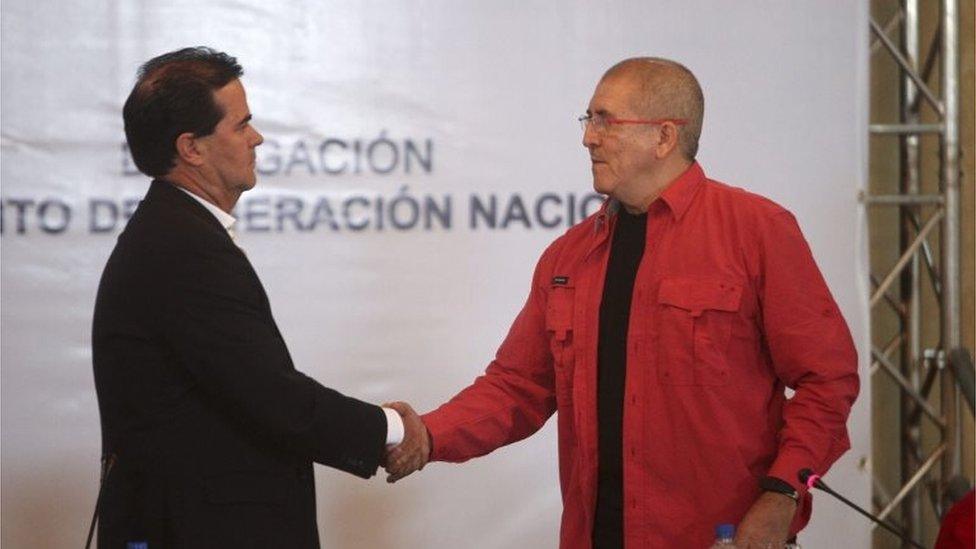
The Colombian government and the ELN announced on Wednesday that they would start formal peace talks
Colombia's government does not know how many people are being held by the left-wing National Liberation Army (ELN) rebel group, an official has said.
The government and the ELN announced on Wednesday that they would enter into formal peace negotiations.
However, President Juan Manuel Santos warned that it was "not acceptable to proceed with peace talks while the ELN continues to hold people".
The ELN has been fighting the government for more than 50 years.
The two sides have been holding exploratory talks for more than two years in Brazil, Ecuador and Venezuela.

ELN
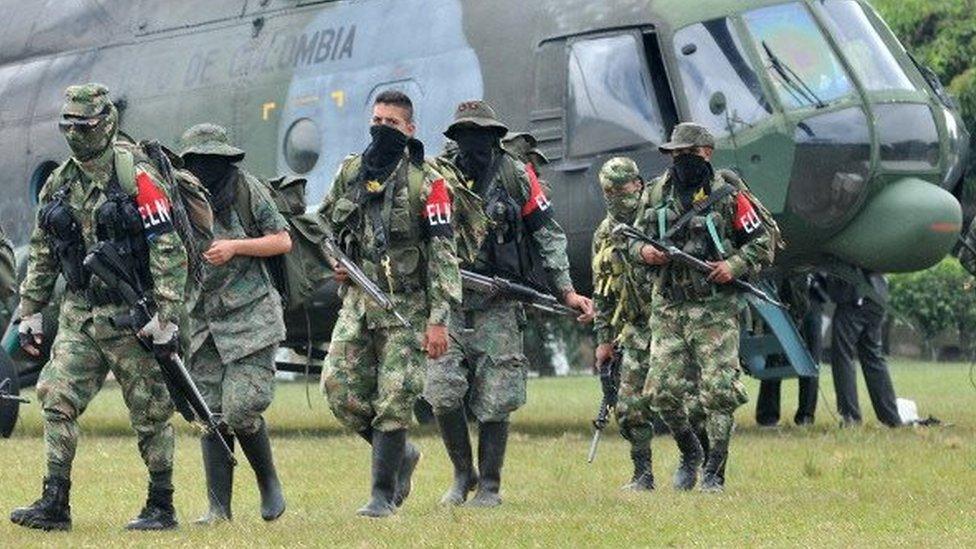
The number of ELN fighters has dwindled over the years with some demobilising and others being captured or killed
Founded in 1964 as a Marxist guerrilla group to fight Colombia's unequal distribution of land and riches
Has some 1,300 active fighters, according to recent government estimates
Strongholds in the provinces of Arauca, Narino and Norte de Santander
Financed by extortion, drug trafficking and kidnappings for ransom

On Wednesday, they announced in a joint statement read by the head of the government delegation, Frank Pearl, and ELN rebel Antonio Garcia that they would start formal peace negotiations.
The ELN's policy of kidnapping has long been one of the major stumbling blocks for peace talks.
In the weeks preceding the announcement, the ELN released two of the hostages it was holding, a soldier and a businessman.
The businessman's family reportedly had to pay ransom to secure his release.
'Moving forward'
On Thursday, Mr Pearl told journalists at a news conference that "we [the government] don't know exactly how many people the ELN is holding".
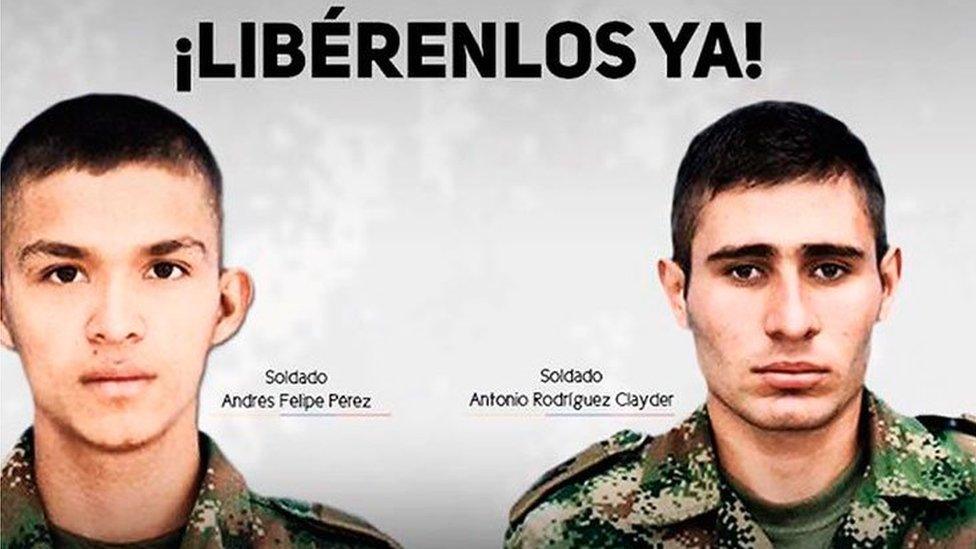
The ELN routinely kidnapped civilians and soldiers, such as these two who were released last year
He said the two sides were working to resolve the issue and move towards formal peace talks.
Another member of the government's negotiating team said President Santos's line on the issue had been clearly and firmly conveyed to the rebels.
The ELN, Colombia's second-largest rebel group, finances itself largely through extortion and kidnappings for ransom.
Most of the victims are Colombian but they have been known to target foreigners.
In 2013, they kidnapped two German pensioners and held them for four months.
The government is also engaged in peace talks with the country's largest rebel group, the Revolutionary Armed Forces of Colombia (Farc),
Those talks are said to have reached their final stretch.
While a deadline to come to a final agreement by 23 March was missed, the government said it hoped to reach a deal by the end of the year.
More than 220,000 people are estimated to have died in more than five decades of conflict between right-wing paramilitaries, left-wing guerrilla groups and the security forces in Colombia.
Millions more have been internally displaced.
- Published8 February 2017
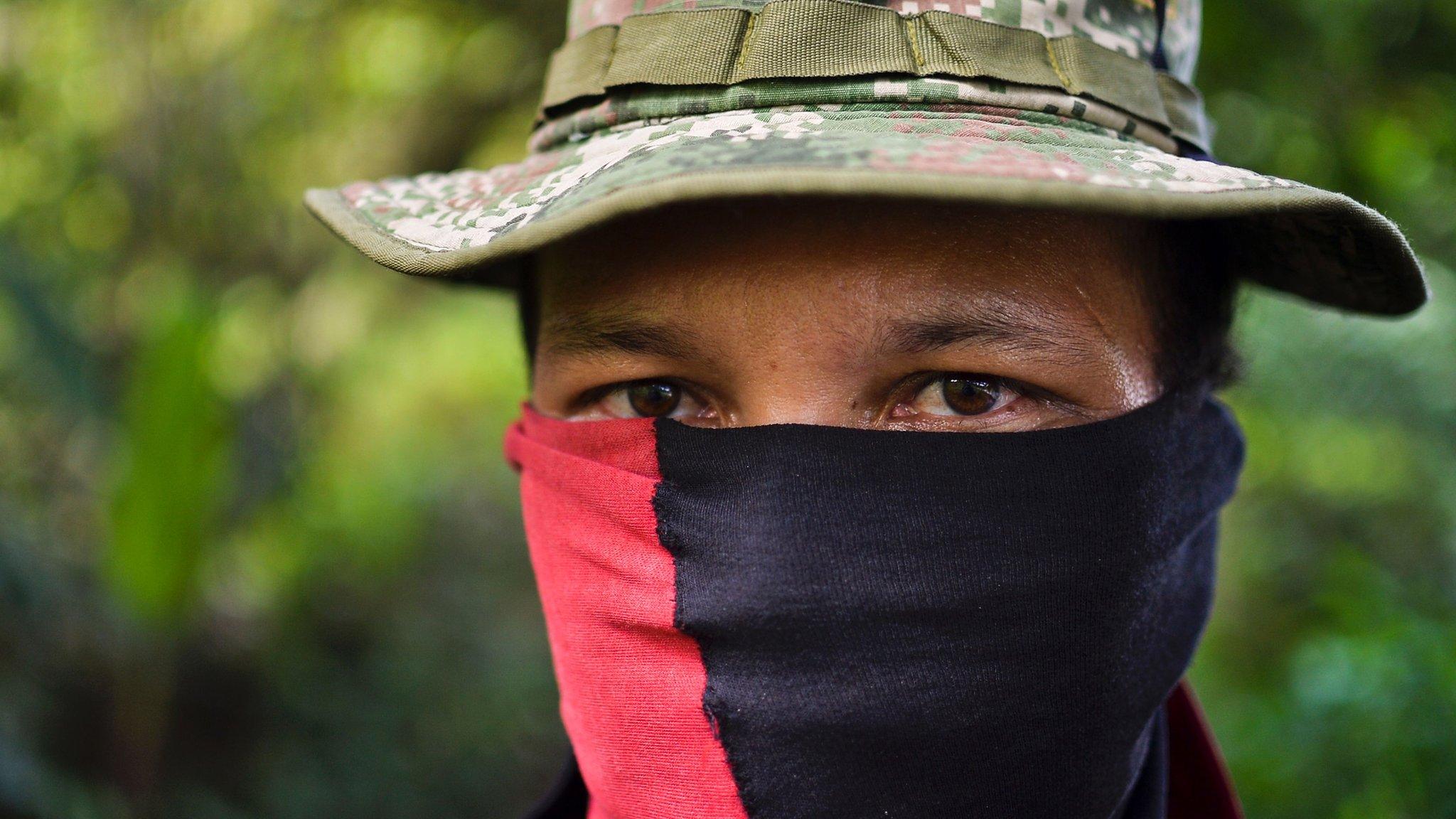
- Published28 February 2016
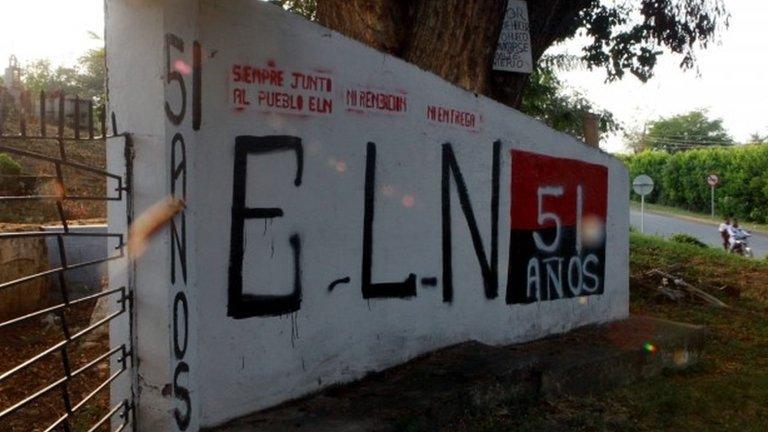
- Published17 November 2015
